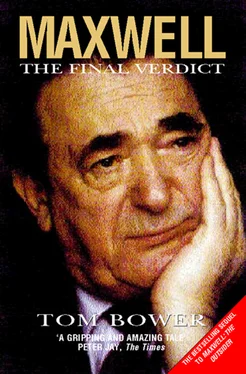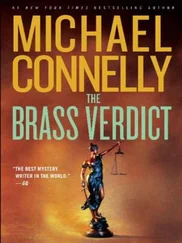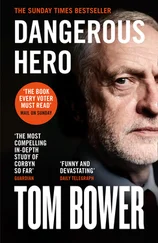The creation of LBI was the direct consequence of Maxwell’s introduction to Larry Trachtenberg and another American, Andrew Smith, renowned as ‘a smooth New York computer jock’. Modelling himself on the Wall Street brokers in Tom Wolfe’s novel, Bonfire of the Vanities , Smith was a fast-talking, self-confident smoothie wearing braces over heavily starched shirts. His appearance and manner shrieked a dealer determined to make his fortune. In 1989, Smith, introduced to Maxwell by his father, a German banker, had professed that his hero was Michael Milken, the American arbitrageur and junk-bond specialist who by 1990 was on course for imprisonment.
Trachtenberg and Smith had met at the London School of Economics in 1985, both of them eager to join the rich in that booming era. Their initial ploy had been to exploit the exploding market for information and sell newsletters of financial and political analysis to banks, industrialists and investors. The information had been compiled by LSE students based on published sources. That easy money fed the two men’s ambitions. Technology was their answer. By 1987 when they met Maxwell, they had invented a computer system which, in theory, monitored all the international economies and markets to identify perfect investment opportunities before any mere mortals could do so. Calling themselves Global Analysis Systems (GAS), they were presented to Maxwell, an unrestrained admirer of technology, not as mere analysts but as investment managers. All they required was other people’s money to earn millions.
Entranced by their gimmick, Maxwell felt that they lacked gravitas. They needed the respectability that could be provided by employing in their firm an established personality in the financial community. That role, he believed, could be best performed by Lord Donoughue, a socialist academic who in the 1970s had served as a policy adviser to Harold Wilson before self-interest prompted him to switch ideologies in the 1980s to capitalism. In 1988, Bernard Donoughue, aged fifty-four, was employed as a director at Kleinwort Benson, the merchant bank, where he was responsible for research. Maxwell, the frustrated Labour politician, was keen to recruit any of Wilson’s team, and Donoughue leapt at the giant salary offered. He would be paid £180,000 per annum, plus £36,000 annual contribution towards his pension and an annual Christmas bonus of £200,000. In addition to that total of £436,000, Maxwell would provide a home in Westminster, close to parliament. An added attraction to LBI’s new, full-time executive vice-chairman (under Maxwell himself) was his belief that £300 million of Maxwell’s money was ‘sloshing about’ in various merchant banks waiting to be invested.
Donoughue’s income matched those of his two colleagues and co-directors. Trachtenberg’s initial annual salary in 1988 had been £80,000 but his income was boosted in the following year by a performance bonus of £125,000. Soon after its payment, Maxwell’s auditors realized that the bonus for all three directors had been paid on what were called ‘erroneous figures’, but it proved impossible for Kevin to overcome Donoughue’s stubborn objections and recover the money. That largesse, the loss of hundreds of thousands of pounds by sheer dilatoriness or negligence, contradicted the cultivated image of Maxwell as a ruthless cost-cutter and was a measure of the true state of the empire’s finances. Accordingly, in 1989, Trachtenberg’s income was consolidated at an annual salary of £185,000 plus £18,500 towards his pension, and Smith was paid £150,000 without any pension contribution. Trachtenberg was assured of a Christmas bonus of £125,000, Smith one of £200,000.
The trio, Trachtenberg, Smith and Donoughue, were formally embraced within Maxwell’s empire as directors of LBI – London & Bishopsgate Investments – with Robert and Kevin Maxwell. (Headington Hill Investments, the controlling company of all Maxwell’s private companies, bought a 60 per cent stake in GAS, which was then renamed London & Bishopsgate International Investment Inc. – LBII.) It was no coincidence that ‘London & Bishopsgate’ featured in the names of a growing number of Maxwell’s private companies. Among the twelve Bishopsgate companies was London & Bishopsgate Traders, London & Bishopsgate Holdings, London & Bishopsgate Group, London & Bishopsgate International NV and London & Bishopsgate International Management. All performed very different functions but, as Maxwell intended, the similarity of the names was liable to confuse outsiders. Adding to the confusion, some of the different London & Bishopsgate companies operated from the same premises and with the same staff.
Having established LBI as his new ‘investment bank’, with IMRO approval, Maxwell sought customers to establish his credibility for financial management. In spring 1988, he bought 25 per cent of First Tokyo Trust, a Scottish investment trust founded in 1980 which controlled £70 million of Japanese shares owned by institutions and private investors. Although Maxwell posed as a buyer in the name of London & Bishopsgate Holdings, a third of the money he used belonged to the pension funds.
Initially, Maxwell’s investment (codenamed ‘Setting Sun’) did not alarm Alan McInroy, the sober Scottish chairman of the First Tokyo Trust, who thought Donoughue ‘charming and competent’. Over the following two years, if any man other than the Maxwells could understand what was happening within First Tokyo, it was Donoughue. Donoughue presented himself, Larry Trachtenberg and Andrew Smith as investment geniuses. Their proposal to McInroy was to improve First Tokyo’s unspectacular performance. Instead of simply investing in Japanese shares, said Donoughue, the Trust should sign a contract to use LBI’s computer programme ‘Japan 60 GAS’ to anticipate the Japanese market’s performance and beat other investors.
Initially, McInroy was irked by Donoughue’s ambitions and opposed the plan, because it contradicted the Trust’s sober purpose, and anyway the transfer of the Trust’s powers to LBI would be expensive. But McInroy was soon outmanoeuvred. Exploiting his svelte patter and his political background, Donoughue had toured the institutions, winning their support for his idea. His management of the Trust was confirmed on 9 January 1989 when he joined First Tokyo’s board with two other Maxwell employees, George Willett, a taciturn stockbroker, and Robert Bunn. Just at the moment when Maxwell’s need for money – to buy MCC shares, to pump money into MCC by purchasing assets, and to pay for his accumulated losses since the stock market crash in 1987 – became pressing, McInroy had effectively allowed his control over the board’s six directors to dissolve, except in extremis by use of his casting vote. ‘I had no choice,’ he would explain. ‘The institutions supported Donoughue and Maxwell.’
Soon after, the Tokyo market fell sharply and Andrew Smith offered Maxwell a solution. It was called stock lending, a perfectly legitimate strategy invented in New York. Financial institutions and investors often required shares for a short period – overnight or a few days – to comply with securities laws or to cover speculative positions. Rather than buying the shares and incurring substantial costs, the investors borrowed them for a fee. In turn, to protect the registered shareholder from loss or theft, the borrower provided securities or cash worth more than the shares. Undertaken in this way, stock lending was risk-free.
It was in its pure form that, on 27 January 1989, Trachtenberg and Smith suggested to McInroy that First Tokyo could generate extra income at no risk by stock lending the shares in its reduced £60 million fund. Overcoming his initial reservations, McInroy agreed to a six-month trial. Unfortunately, however, he failed to ask a number of pertinent questions about the transactions, and most of all he failed to examine the contract between First Tokyo and LBI. He merely demanded that Morgan Stanley, the Trust’s bank which held the share certificates in its safe in London, should accept all the risk. Trachtenberg and Donoughue were told to obtain an undertaking to that effect from Morgan Stanley, whose vice-president Thomas Christofferson duly gave it. Trachtenberg and Donoughue then assured McInroy that the bank had agreed to be the guarantor, though the First Tokyo chairman appears never to have asked for written evidence. ‘That wasn’t my responsibility,’ he later explained.
Читать дальше












